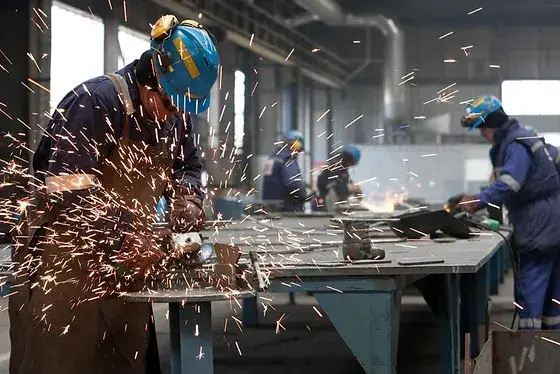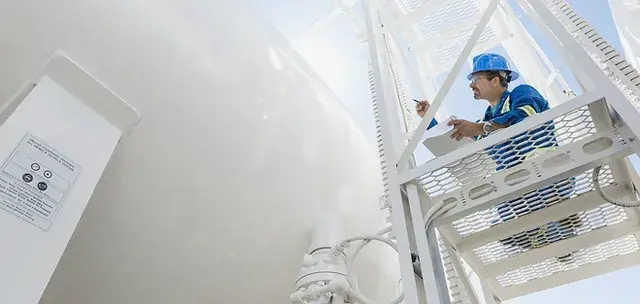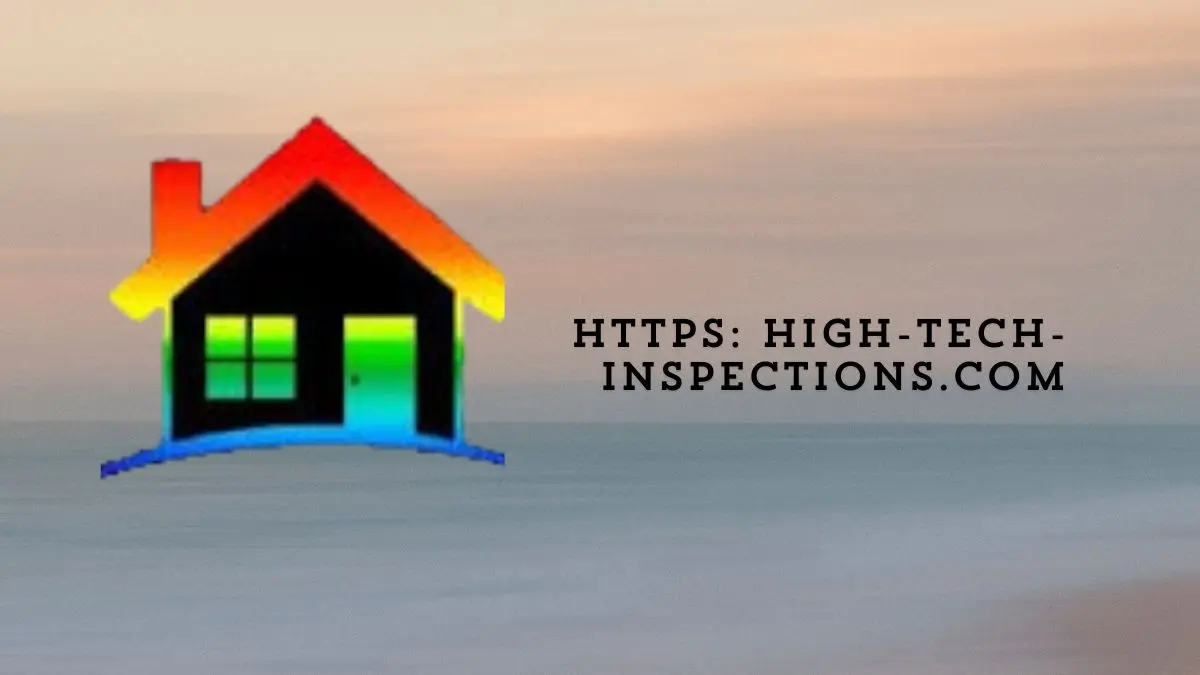https//high-tech-inspections.com: In today’s property market, ensuring a property’s safety, structural soundness, and code compliance requires more than just a surface-level check. High-tech home inspection services have transformed how inspections are done, making the process faster, more accurate, and more comprehensive. Here’s everything you need to know about high-tech home inspections, including what they entail, how they work, and why they are essential for modern property buyers and sellers.

What Is a High-Tech Home Inspection?
A high-tech home inspection uses advanced technology to assess the condition of a property more thoroughly and accurately. Unlike traditional inspections, which rely on manual checks and the inspector’s visual analysis, high-tech inspections incorporate tools such as drones, infrared cameras, and sensors. These technologies help identify hidden issues, like moisture behind walls or roof damage, that might otherwise go unnoticed.
High-tech home inspections are increasingly popular among buyers and sellers who want to ensure that a property is in good shape before a sale. Whether you’re buying, selling, or maintaining a property, a high-tech inspection provides peace of mind by delivering detailed insights into the property’s condition.
Key Technologies Used in Modern Home Inspections
Let’s dive into some of the advanced tools that high-tech inspection companies use to improve the quality of their assessments.
Drones
Drones are especially valuable for inspecting hard-to-reach areas, like rooftops and gutters. Equipped with high-resolution cameras, drones can capture detailed images and videos, which inspectors can analyze to identify damage, leaks, or wear and tear. Using drones for inspections is safer and often more efficient than manual roof inspections, which require ladders and specialized safety equipment.
For example, some high-tech inspection companies use drones to scan roofs, check chimney integrity, and even assess solar panels. This aerial perspective can reveal issues that may not be visible from ground level.
Infrared Cameras
Infrared (thermal) cameras detect temperature differences on surfaces, making them ideal for spotting hidden problems. These cameras are frequently used to detect:
- Moisture leaks behind walls or in ceilings
- Poor insulation areas, which can lead to higher energy bills
- Electrical hotspots, which might indicate potential fire hazards
Using infrared technology, inspectors can identify potential issues without invasive procedures like cutting into walls. This non-destructive approach makes inspections more efficient and less disruptive to property owners.
Artificial Intelligence (AI)
AI is becoming a game-changer in the inspection industry. AI-driven software can analyze large amounts of inspection data quickly, identifying patterns that might indicate structural issues or other risks. For example, AI can process images from drone footage and flag areas that require a closer look.
Some companies also use AI to help generate reports faster and with greater accuracy. This means clients receive detailed inspection reports sooner, often within hours of the inspection, complete with photographs and highlighted areas of concern.
Moisture and Air Quality Sensors
Moisture and air quality sensors are critical for detecting environmental issues in homes. High-tech inspections may include air quality testing to detect harmful pollutants, allergens, and mold. Moisture sensors are useful in areas like basements and bathrooms where water damage might not be visible.
These sensors help ensure that the property is not only structurally sound but also a healthy environment for its inhabitants.

Benefits of High-Tech Inspections Over Traditional Inspections
Opting for a high-tech inspection has several advantages:
- Greater Accuracy: Technologies like infrared cameras and drones minimize the risk of missing issues.
- Time Efficiency: Automated tools and AI help streamline the inspection process, reducing inspection time.
- Comprehensive Reporting: High-tech inspections often provide more detailed reports, complete with visuals, data analysis, and recommendations.
- Cost Savings: Identifying issues early can save on costly repairs down the line.
- Enhanced Safety: Drones and other tools allow inspectors to assess hazardous areas without putting themselves at risk.
What to Expect During a High-Tech Home Inspection
During a high-tech inspection, expect the inspector to use a variety of tools based on the property type and condition. Here’s a general outline of what the process may look like:
- Initial Walkthrough: The inspector does a quick walkthrough to familiarize themselves with the property layout and note any visible issues.
- Use of High-Tech Tools: Depending on the areas being inspected, the inspector will deploy drones, thermal cameras, and other sensors to collect data.
- Analysis and Reporting: The inspector may use AI software to analyze the findings. A detailed report is then generated, often including annotated images or videos.
- Review with the Client: The inspector may go through the report with you, explaining each finding and suggesting next steps for any issues identified.
The inspection typically takes a few hours, depending on the property size. A high-tech inspection is usually faster than traditional methods, thanks to the automated tools involved.
Choosing a High-Tech Inspection Service Provider
When choosing a high-tech inspection service provider, consider the following factors:
- Technology Used: Make sure they use the latest tools, such as drones and infrared cameras.
- Certification and Experience: Look for certified inspectors with experience in using advanced technology.
- Sample Reports: Ask to see a sample inspection report. A high-quality report should be detailed, easy to understand, and include visuals.
- Client Reviews: Check online reviews or ask for references to ensure the company has a good reputation.
- Cost: High-tech inspections may cost more than traditional ones, but the added accuracy and detail are often worth the investment.
For a starting point, visit American Society of Home Inspectors (ASHI) to find certified inspectors in your area and learn more about inspection standards.
How to Interpret Your Inspection Report
A high-tech inspection report might seem complex at first glance. Here are some tips to help you understand it:
- Key Areas to Review: Focus on sections flagged as “needs repair” or “high priority.”
- Images and Annotations: Look at photos and video stills that highlight problem areas.
- Recommended Actions: Pay attention to any suggested repairs or maintenance. Some issues might need immediate attention, while others could be minor concerns.
- Environmental Hazards: Check if air quality or moisture levels indicate potential health hazards.
If anything is unclear, don’t hesitate to ask the inspector for clarification.

High-Tech Inspections for Commercial Properties
High-tech inspections are also invaluable for commercial properties, which often have larger and more complex structures. Drones are particularly useful for surveying extensive roofing systems, while infrared cameras can help assess HVAC systems and large-scale electrical setups.
Commercial inspections might also involve specialized equipment for safety compliance, such as testing fire safety systems, elevators, and industrial equipment.
Conclusion
High-tech home inspections have redefined the standards for property assessments, offering a deeper, more accurate look at a property’s condition than traditional methods. By incorporating technologies like drones, infrared cameras, AI, and sensors, these inspections provide insights that help homeowners, buyers, and sellers make informed decisions and avoid unexpected repair costs.
While high-tech inspections may be a bit more expensive upfront, the benefits of early problem detection, safety, and peace of mind are often worth the investment. If you’re in the market for a property or want to ensure your current home is safe and well-maintained, a high-tech inspection is a valuable tool for protecting your investment and ensuring a safe environment.
Frequently Asked Questions About High-Tech Home Inspections
Q1: Are high-tech home inspections more expensive than traditional ones?
Yes, high-tech inspections often come at a premium due to the advanced tools and technology used. However, the added insights and accuracy typically justify the cost.
Q2: How long does a high-tech home inspection take?
Most high-tech inspections are completed within a few hours, depending on the property’s size and complexity.
Q3: Do high-tech inspections cover all aspects of a property?
High-tech inspections are thorough, but they may not cover areas unrelated to structural or environmental safety, like aesthetics or interior decor. Always clarify with your inspector what will and won’t be covered.
Q4: Can I attend the inspection?
Yes, most inspectors welcome property owners or prospective buyers to observe. This can be a valuable opportunity to ask questions and understand the findings in real-time.




